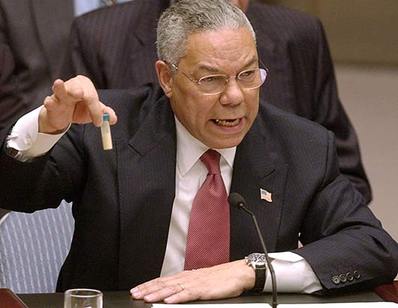
There isn't a whole lot I can add to Greg's excellent critique of Jonah Goldberg's latest NRO piece on the current situation in Iraq. I concur with just about everything he had to say, although I'd take said criticism a tad further and ask what I believe to be a fundamental - and often neglected - question in American foreign policy: what do we expect of government when it adventures abroad?
Aside from, as Greg already noted, the many lives lost and the trillions likely to be spent when all is said and done, there is an overarching question about the responsibility of government to do as it says it will do, and no more, while exerting American power abroad. Were this a matter of domestic spending I suspect Goldberg would agree, yet as soon as the United States leaves its own shores these principles seem to become null and void. After all, it's certainly noble to suggest that politics end at the water's edge, but should American principles as well?
I don't intend for this to be an anti-Republican, anti-Bush or even an anti-Jonah Goldberg screed. I actually read Jonah's book, Liberal Fascism, and while I disagree with several of his conclusions, I enjoyed the read overall. I especially liked the chapter on President Wilson and the Progressives, in which he writes:
Today we unreflectively associate fascism with militarism. But it should be remembered that fascism was militaristic because militarism was "progressive" at the beginning of the twentieth century.
The idea that war was the source of moral values had been pioneered by German intellectuals in the late nineteenth and early twentieth centuries, and the influence of these intellectuals on the American mind was enormous. When America entered the war in 1917, progressive intellectuals, versed in the same doctrines and philosophies popular on the European continent, leaped at the opportunity to remake society through the discipline of the sword.
Now, I'm in no way suggesting that Jonah Goldberg is using the Iraq War to reengineer American society, nor am I calling him a conservative fascist. I am, however, concerned that this messaging whitewash we're now witnessing only serves to further confuse the purpose of American military might.
That Iraq could possibly grow into a freer, more pluralistic and even prosperous Mideast democracy is a wonderful prospect. But it is not the reason the United States invaded Iraq, and if we don't keep that in mind every time someone such as Goldberg decides to see silver linings in the policy clouds we will only make similar mistakes over, and over and over again.
And if the purpose of American foreign policy is to liberate the oppressed peoples of the world, I would then ask, at what cost? Freedom isn't free; indeed, it apparently, as Greg noted, costs tens of thousands of lives and trillions of dollars.
Is this sustainable? I would think not. U.S. military supremacy can either be a single tier in American foreign policy, or it can be the entirety of that foreign policy. I fear that both political parties often confuse the latter, be it deliberately or not, in order to score cheap points against the sitting president. They do this because it apparently works. Goldberg writes that the mad dash for Iraq credit "shows that Americaâ??s victories arenâ??t Republican or Democratic victories, but American victories. The same goes for its losses." This would be true, if ever a loss or failure abroad were admitted in Washington. But to be that introspective would equal political suicide, and thus, the victory parade must go on.
That's all well and good for legacy building and the campaigns to come, but is such a lack in retrospective criticism healthy for the country as a whole?











